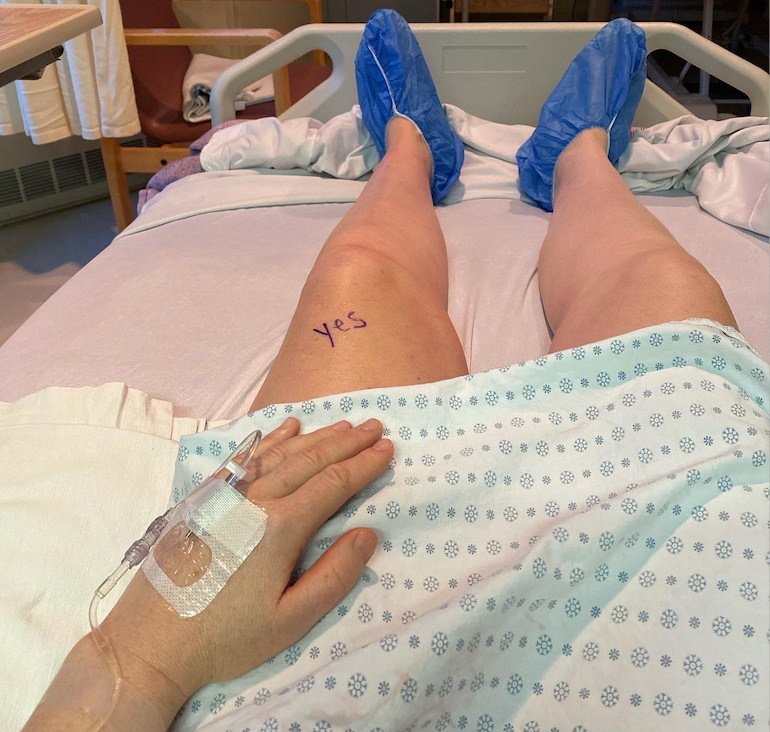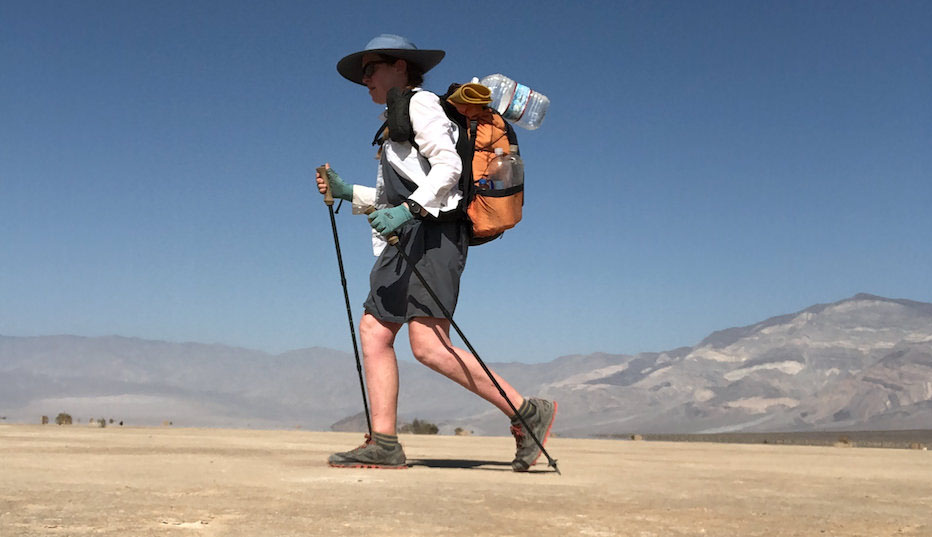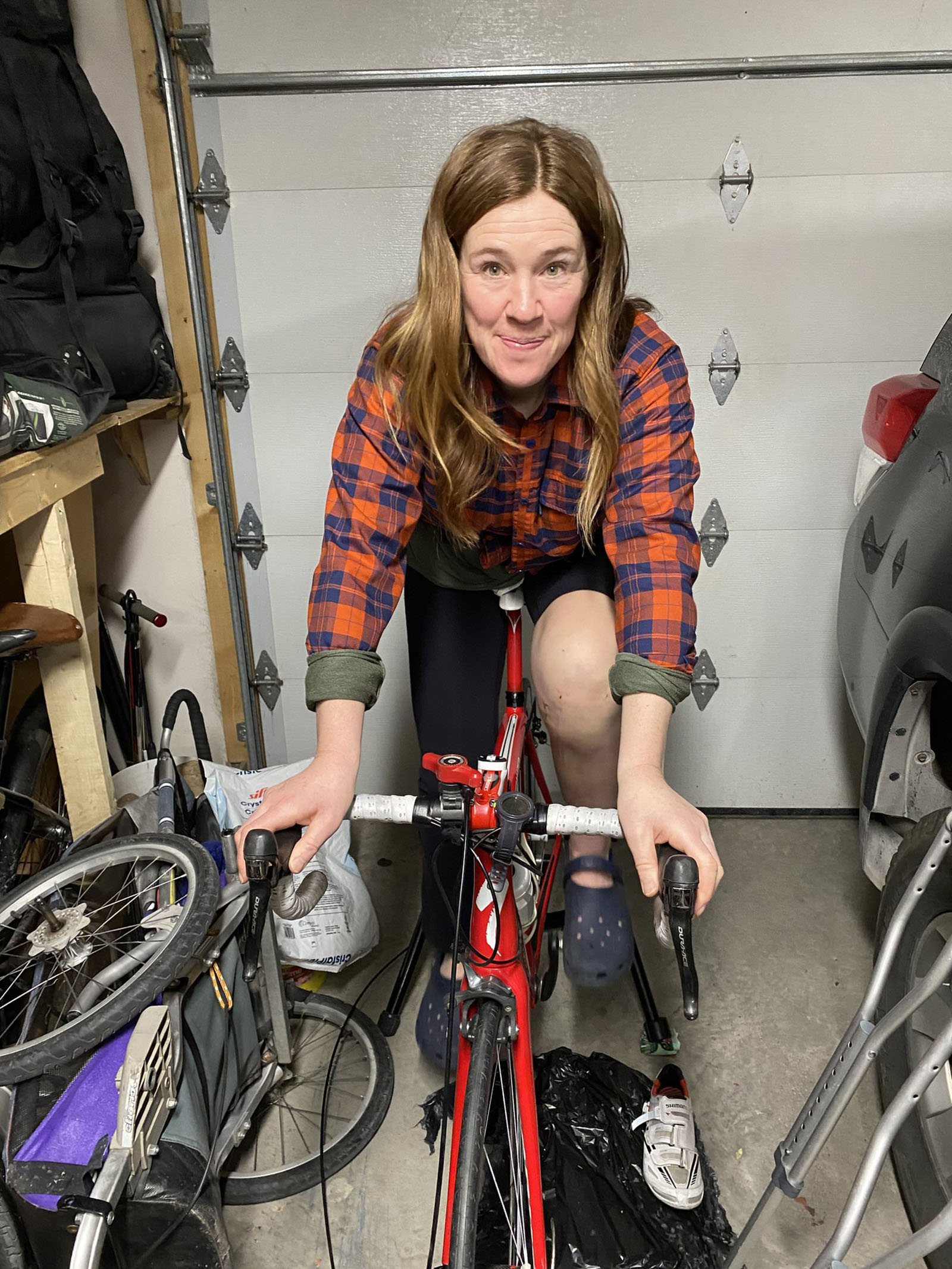Healthcare staff inspire Olympian
Clara Hughes grateful for knee surgery and hospital care she received

February 24, 2022
By Brenton Driedger, Social Media and Storytelling Advisor, Covenant Health
Clara Hughes had plenty of time during the Olympics to watch and cheer on her fellow Canadians participating in the Winter Games in Beijing.
“Competing in them is 16 days of glory,” says Clara, a former Olympic speedskater and cyclist who represented Canada in a total of six Summer and Winter Games.
The six-time medallist recently had knee surgery at Banff Mineral Springs Hospital. And she was grateful to have had a few weeks of Olympic distraction and motivation as she began her lengthy recovery.
Surgeons repaired a meniscus tear and performed a realignment on Clara’s left knee on Jan. 17. Now facing months of rehab, Clara is balancing her physical recovery with mental wellness by practicing being present and focusing on what she can do each day.
“I’m not thinking too far ahead, not trying to do too much too soon and just dealing with what I have today in this time and then doing the best that I can,” says Clara, the only Canadian to have won medals at both the Summer and Winter Olympics. “And I think that’s all that all of us can do in this time.”

Since retiring from competitive sports, Clara has stayed very active and enjoys going for long hikes, sometimes for weeks at a time. She says she “tweaked” her knee doing some indoor personal training, but she delayed getting it checked, partly because she didn’t want to bother healthcare teams responding to the pandemic. She kept hiking, the injury worsened and she eventually went to see her doctor, who referred her to the team at Banff Mineral Springs Hospital.
Dr. Alexis Rousseau-Saine, an orthopedic surgery fellow at the hospital, says Clara’s meniscus (or “shock absorber”) was torn close to where it attaches to the bone. She also needed a procedure called a high tibial osteotomy so there would be less weight on the inside of her knee.
“We had to readjust the alignment of her leg so that this part of the knee would see less load, less pressure every time she walks. So that’s where the osteotomy comes into play. It’s adding a shim in the bone to realign the leg so that every time she walks the weight goes through more of the central and outside part of her knee rather than the injured part, the inside part.”

Patients can choose between receiving a general anesthetic or a spinal, which Alexis says is similar to an epidural offered during childbirth. Clara chose the spinal, which meant she was awake during the procedure because she wanted to more fully appreciate the significance of the operation. While she couldn’t feel anything, and there was a tent blocking her view, she was able to watch on a TV screen, and she could hear the sounds of surgery.
“It was like a carpentry project on my leg,” says Clara.
“Hearing drills and hammers and all these things going on, it really helped me understand that this is going to be epic in recovery and that I need to be so careful. All the care that these surgeons and these doctors and nurses and everyone at the hospital were giving me, it reminded me that I need to take this same time and care and patience in recovery.”

Clara hiking through Death Valley in California in 2019
That recovery is expected to take several months. Within three weeks, Clara was on her stationary bike for about 20 minutes a day, pedalling with one leg. She also started doing physiotherapy multiple times a day, focusing on light movement. By six to eight weeks after surgery, she expects to be able to put weight on her leg again, and then there will be at least four months of “pretty hardcore rehab” before she hopes to walk without a limp.
As someone who has used her profile to advocate for mental health, Clara knows her recovery will test her physically and mentally.
“Even though I know my knee is going to get better, I’m not thinking too far ahead because it is so far off from being good enough to even walk properly,” says Clara. “I just have to take gratitude for the smallest, tiniest things every day.”

Clara starting to use the stationary bike again
Alexis says the transition from an active lifestyle to a lengthy recovery can be very psychologically challenging for patients. But Clara’s approach and attitude will serve her well.
“When I saw her in clinic for her first follow-up and she was back on her stationary bike doing just a couple turns, that was already a win for her. And when you can see all the little victories throughout the rehab, it helps a lot for the mental part of it.”
While watching the Olympics provided Clara with an encouraging boost, she also draws inspiration from all those who have played a role in her care, including during her two-night stay in hospital after surgery.
“It’s the kindness and encouragement I heard the nurses and staff giving to other patients who were having a much more difficult time than I was having. I thought, ‘Wow, there’s all these acts of kindness everywhere,’” says Clara. “It definitely is a battle to remain present, to remain grateful and hopeful. But what I keep coming back to is that all I have is here and now, and is there anything I can do today?”